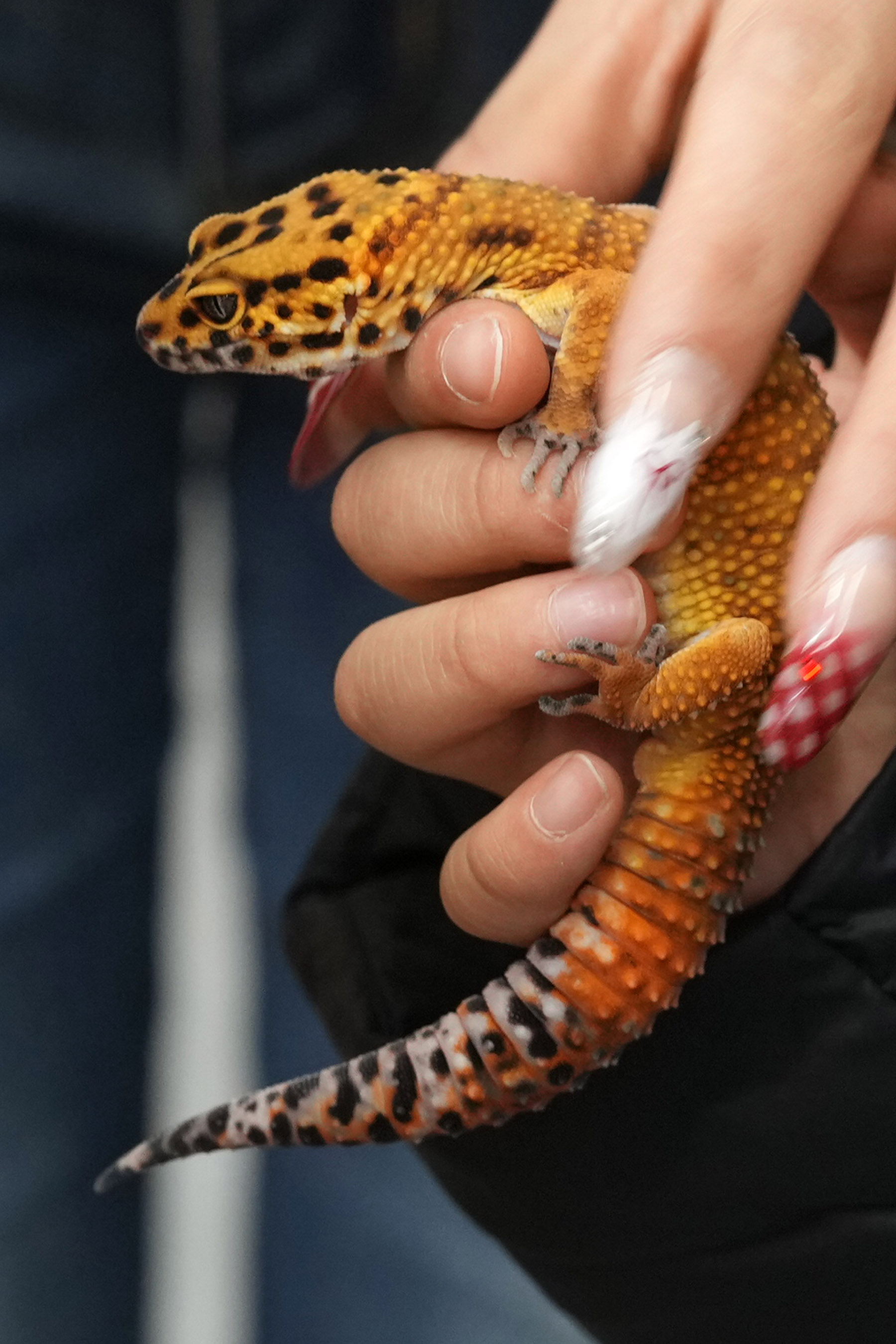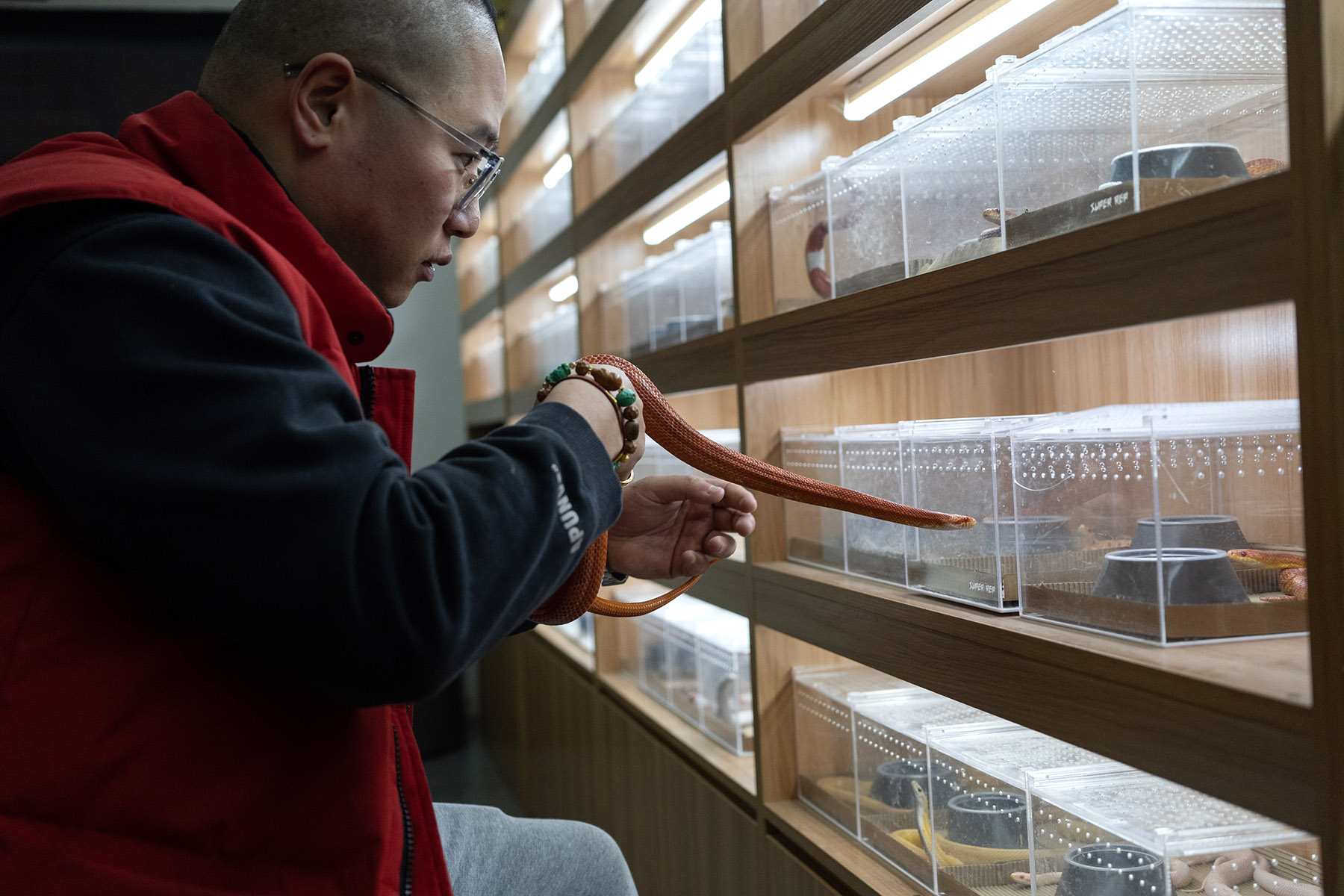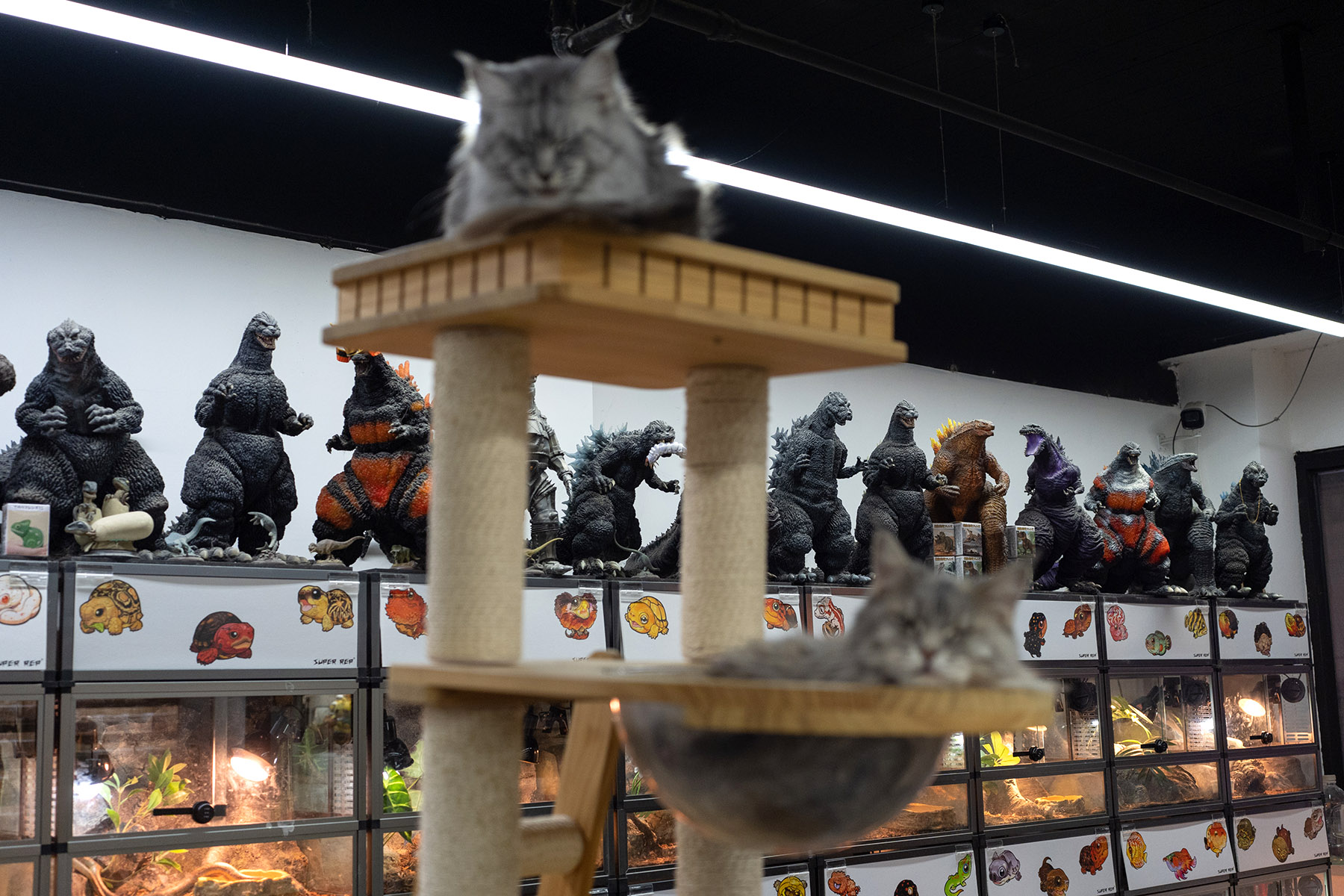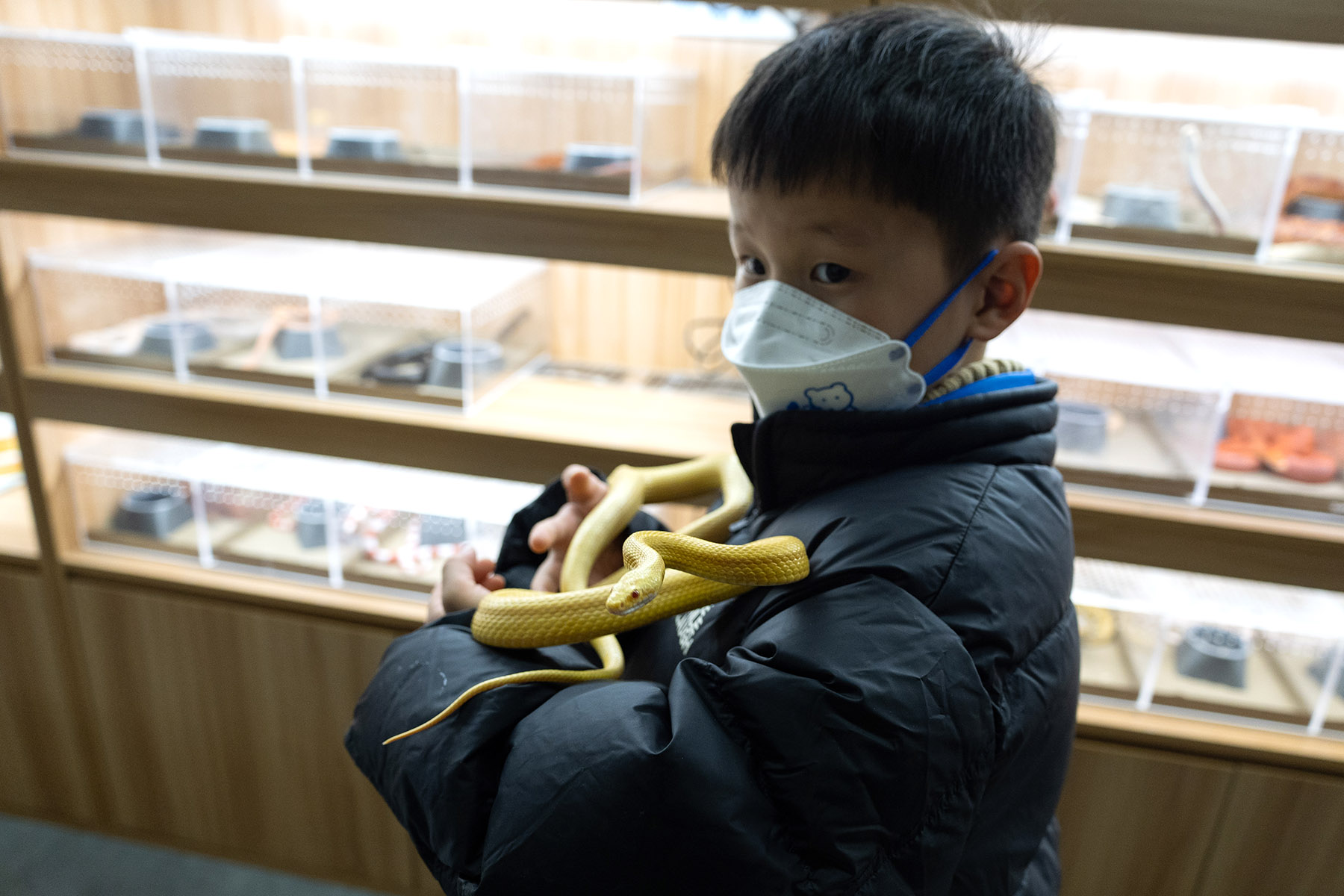Despite being seen as frightening, the Year of the Snake brings more reptiles into the loving arms of the upcoming generation, Zheng Zheng reports.

At a reptile cafe in Shanghai, 19-year-old Qiu Shiyuan gently pets a corn snake coiled around her hand. "They're just as affectionate as traditional pets," she says, eyes gleaming with affection. "Many people are interested in them but are held back by the stereotypes of reptiles being cold and frightening creatures."
He Yonghua, a young visitor at the Zenki exotic pet experience store, says the sensation of touching snakes is unique. "You realize it is a living creature, not as scary as it first appears. Touching it gives a feeling of a vibrant life moving in your hands. You learn to respect and admire it," she adds.
READ MORE: Here's how snakes got an evolutionary leg up on competition
As China ushers in the Year of the Snake in 2025, the country is witnessing a boom in its exotic pet market. Reptiles, particularly snakes, emerge as favorites among young pet enthusiasts. The transformation is striking, given the traditional associations of suspicion and fear to snakes and other reptiles.
At Baobaolong Reptile Bar in Yangpu district, one of Shanghai's first reptile cafes, store clerk Qiao Xinran has observed this transformation. "When the store opened four years ago, people were not nearly as interested in exotic pets as they are now," she recalls. "Our customers range in age from 15 to 28 and include kids accompanied by parents. Surprisingly, women make up the majority — challenging long-held assumptions about who is interested in reptilian pets."
The two-story store houses approximately 50 snakes and 70 geckos that give visitors an opportunity to interact with the creatures in a safe, controlled environment. "All our snakes are nonvenomous and carefully temperament-tested," Qiao explains. "We provide detailed handling instructions and maintain constant supervision to ensure the safety of both animals and visitors."
During the Chinese New Year holiday, the store saw dozens of visitors each day, reaching full capacity several times. This surge in interest reflects a broader shift in China's pet culture traditionally dominated by cats and dogs.
According to Petdata.cn's 2025 China Pet Industry White Paper, approximately 17.07 million Chinese people keep exotic pets — defined as uncommon or unusual domesticated animals, including aquatic creatures, rodents, birds, and reptiles. The market has swelled to nearly 10 billion yuan ($1.37 billion), with reptile ownership surging by 2.9 percentage points to 11.3 percent of all exotic pet owners.

Chen Guanwen, an 18-year-old snake owner, exemplifies the new generation of exotic pet enthusiasts. "I've been fascinated by snakes since watching nature channels as a child," she says. After years of research and persuading her parents, she has three snakes, including two boa constrictors.
"They're very low-maintenance pets," she explains. "As a student with a packed schedule, I only need to feed them weekly and maintain their enclosure."
The financial accessibility of snake ownership has also contributed to its growing appeal. Basic snake species can cost from a few hundred to a few thousand yuan, with feeding expenses averaging just over 10 yuan per month. The affordability combined with low care requirements makes them particularly attractive to young urban dwellers managing demanding work schedules.

Cui Dejun, owner of the Zenki exotic pet experience store in downtown Shanghai, has been in the business since 2016. His store normally accommodates around 40 snakes for petting. During breeding season from late April to October, his inventory can reach up to 1,000 snakes.
At pet exhibitions, he can sell over 100 snakes in just a few days. "The market grows larger every year," he notes. "Young people especially are looking for something different from traditional pets."
Cui says many people are curious about snakes. "Since it is the Year of the Snake, we saw more visitors during the Spring Festival period." As few people have regular encounters with reptiles, these experience shops provide a safe environment for people to interact with snakes, dispelling misconceptions and fears, Cui adds.
The rise in raising exotic pets also reflects a generational shift. "Today's youth receive different education and have more access to information about these animals," Qiao observes. "Unlike previous generations taught to fear snakes, they're learning about these creatures through social media and other channels."

This transformation is evident in He's experience, who touched snakes for the first time without any nervousness. "I feel more intrigued than fearful of snakes and reptiles after watching many videos online," she says. "I hope people will try touching a snake and realize that it is a living creature and there is no need to be scared."
Though relatively niche, the industry operates within specific legal frameworks. "We deal exclusively with non-protected species that are legal for domestic ownership," Cui emphasizes, noting that the snakes they handle are captive-bred for multiple generations, resulting in stable temperaments, unlike their wild counterparts.
ALSO READ: 1.5-meter-long water monitor lizard makes bid for freedom
"The market has enormous potential," Cui affirms. "We are seeing more pet exhibitions and reptile experience stores opening across China. With younger generations becoming more open to these animals and the increasing availability of care information, the future looks promising."
For young enthusiasts like Qiu, Chen, He and countless others, these exotic pets represent more than just a trend — they are also changing the way Chinese society views and interacts with nature.
Contact the writer at zhengzheng@chinadaily.com.cn


